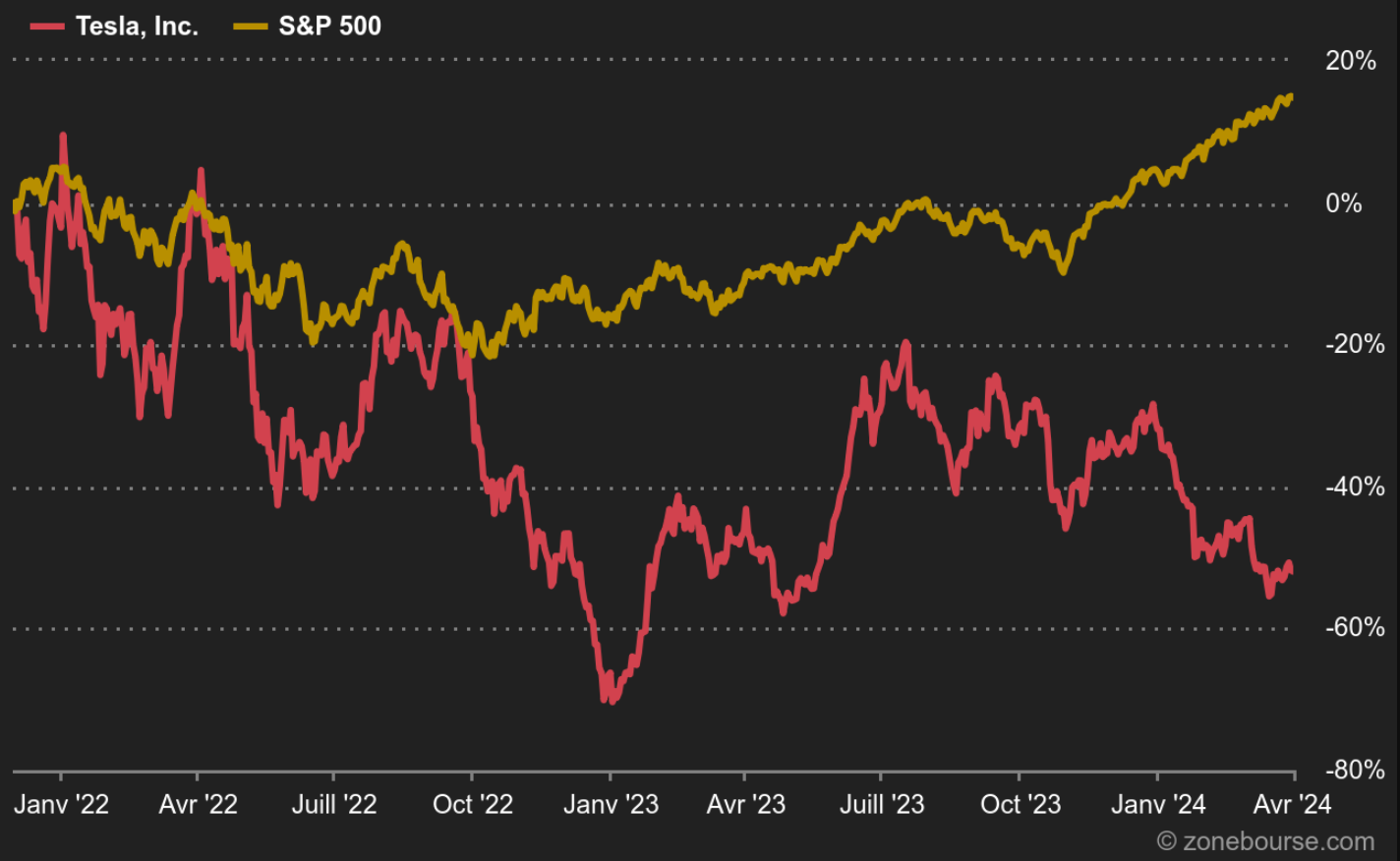Deliveries are weaker than expected
Elon Musk's group clearly missed analysts' forecasts for first-quarter deliveries. Deliveries totaled 386,810 units (of which 95.6% for models 3 and Y alone), down 20.2% on the previous quarter and 8.5% on the same period last year. The consensus was for an average of 454,200 deliveries.
The automaker explained that the drop in volumes was "partly" due to the start of ramp-up of production of the updated Model 3 at the Fremont plant. Sales were also penalized by factory shutdowns resulting from the rerouting of ships due to the conflict in the Red Sea and an "arson" fire at the Berlin Gigafactory.
Chinese automakers come out of the woods
Tesla is also facing increasing competitive pressure from China, particularly from BYD, which also offers plug-in hybrids. At the end of last year, the Shenzhen-based group overtook Tesla as the world's leading seller of electric vehicles, with the price battle benefiting BYD more than Tesla in terms of market share.
On the other hand, Tesla is facing a drop in demand. Buyers are quite reticent about the characteristics of electric cars: range, lack of recharging infrastructure, reselling value, life expectancy, inflation and the drop in government subsidies. Regulatory authorities are adding fuel to the fire. Last December, they forced Tesla to recall nearly 2 million vehicles to incorporate new safety measures into the advanced driver assistance system... Not enough to reassure potential buyers.
-59% from highs
Tesla has had a tough first quarter on the stock market. The automaker is nothing less than the worst performer on the S&P 500 since the start of the year, with a loss of 33%.
It's been complicated for a while


 By
By 




